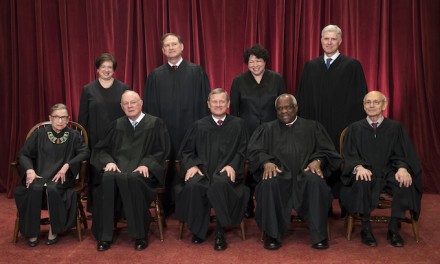The U.S. Constitution even protects suspected terrorists — and that uncomfortable reality is what makes it so difficult for authorities to keep their hands on cowards like Omar Mateen.
Mateen, the gunman who killed 49 people and wounded 53 others at the Pulse nightclub in Orlando, was pegged as a possible terrorist twice by the FBI. They looked into him in 2013 after co-workers said he had referenced terrorism ties.
He was questioned twice. The feds conducted surveillance, interviewed witnesses and went through his record. After all of that, there was nothing — so the FBI moved on.
A year later, they looked into him again. There were allegations that he had links to Moner Mohammad Abu-Salha — the first American suicide bomber in Syria who did battle with the al-Nusra Front. But there again, the FBI was handcuffed. They closed the investigation.
There was little else they could do.
The Constitution prevents the government from holding people who they think are simply shady or suspicious. There needs to be probable cause that a crime was committed, and without that no one — not even a person with suspected terrorism ties — can be held.
“It’s a real dilemma for law enforcement. Under the Constitution, there is no preventative detention,” said Kendall Coffey, the former U.S. Attorney for the Southern District of Florida. “If someone is a suspect, they can be held briefly for further questioning. But this is an issue that has constitutional dimensions.”
Illegal immigrants can be detained in certain situations, and so too can a material witness in terrorism investigations — a well-worn tactic employed by authorities after the 9/11 attacks.
But Mateen was an American citizen, and there wasn’t a larger terrorism investigation that he could be called to testify about. There was nothing to hold him.
“You had an American citizen here, and the reality is that if you don’t have probable cause a person can’t be detained for a significant period of time,” Coffey said. “Apparently, there was a lack of evidence here. It’s not enough to find someone’s behavior troubling.”
Federal authorities didn’t even have enough to keep Mateen on the Terrorist Screening Database. In order to be included on the database, there needs to be a “reasonable suspicion that the person is a known or suspected terrorist,” according to information provided by the FBI.
Reasonable suspicion is an even lower standard than probable cause. For example, authorities need reasonable suspicion to stop and pat down a person on the street, but they need probable cause in order to actually arrest them.
The feds had neither when it came to Mateen. They conducted two investigations, came up with nothing and removed him from the Terrorist Screening Database when they came up with nothing.
Anything else would have been unconstitutional.
___
(c)2016 the Boston Herald
Visit the Boston Herald at www.bostonherald.com
Distributed by Tribune Content Agency, LLC.
—-
This content is published through a licensing agreement with Acquire Media using its NewsEdge technology.


















Recent Comments